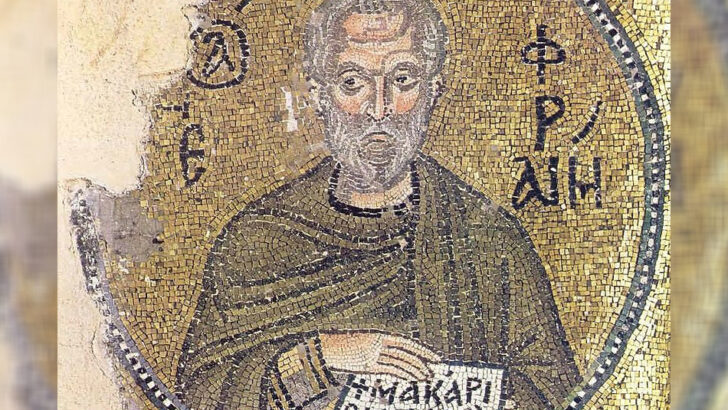Saint of the week
One of the host of remarkable men the early Church offers up is St Ephrem the Syrian, who is now known far and wide for his remarkable hymns and poems that offer us a profound glimpse into the Divine.
Probably born in the year 306 in the city of Nisibis (modern-day Nusaybin, Turkey), it’s now commonly believed that Ephrem was born to Christian parents, who were part of a small but growing community of faithful in that region. It was against this backdrop that Ephrem grew in both stature and faith, and when the bishop of Nisibis, Jacob, returned from the Council of Nicea in 325 – if you recall, that most important of Church councils, which attempted to articulate the Church’s faith as it had lived and professed it to that day, and the result of which we speak every time we say the Nicene Creed at Mass – Ephrem caught his eye.
Ordained a deacon either upon his Baptism or later, Jacob appointed Ephrem as a teacher of Christians, and it was during this time that Ephrem plumbed the depths of Scripture in order to produce the astonishing hymns, poetry, prayer and prose that he’s most widely known for.
He used his gift for words and imagery as part of his educational role, despite the turmoil and tumult of the world around him. Nisibis was surrendered to the Persian army and the Christians were expelled in 363, but undeterred by this, Ephrem continued to shepherd the flock assigned to him in Edessa.
Ephrem saw Christ everywhere, in everything. The wellspring of this vision for him was Scripture, but from there it flowed out into the world. “In every place you look, his symbol is there… For by him were created all creatures and he imprinted his symbols upon his possessions when he created the world,” Ephrem proclaims.
Ephrem embedded the symbols he saw into his hymns and poems, and earned himself the title, ‘The Harp of the Holy Spirit’ as a result. It was quickly recognised by those around him, and still is to this day, that his words were conveying God’s music to the world, which built up the faith of those who heard it.
A contemporary anecdote relates how a ‘holy elder’ once dreamt of Ephrem, and upon waking, heard people speaking of the “fountain flowing forth” from the mouth of the saint. The elderly person connected the dots between Ephrem’s reputation and the dream they’d had, realising that the Holy Spirit itself was the guiding force behind Ephrem’s words.
Whether or not the anecdote is true, it reveals to us the reputation Ephrem had among the community of faith he was surrounded by. That this reputation continues nearly 2,000 years later indicates that the Holy Spirit indeed stands behind his words, imbuing them with a fire that still speaks to souls today.
On June 9, 373, this Syriac Doctor of the Church, one of the Church’s greatest hymnographers, entered the heavenly rest his words had sought to convey. It’s on this day that we remember this holy wordsmith.


 St Ephrem the Syrian
St Ephrem the Syrian